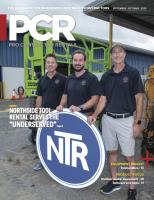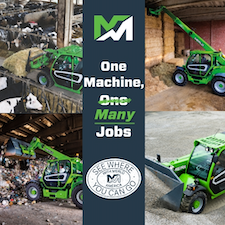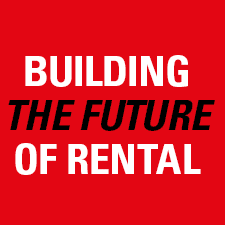Equipment Leasing and Finance Association announces top 10 equipment acquisition trends for 2023
Real private investment by U.S. businesses in equipment and software is forecast to be more than $2 trillion in 2023, with a substantial amount of that investment activity financed, so these trends impact a significant portion of the U.S. economy.
“Slower economic growth underlies the trends this year as equipment acquisition continues to drive supply chains across all U.S. manufacturing and service sectors. Nearly eight in 10 of U.S. businesses currently use equipment leasing and financing to acquire the productive assets they need to operate and grow. We are pleased to provide the Top 10 Equipment Acquisition Trends to help businesses make their strategic equipment acquisition plans,” says Ralph Petta, ELFA president and CEO.
ELFA distilled recent research and data, including the Equipment Leasing & Finance Foundation’s 2023 Equipment Leasing & Finance U.S. Economic Outlook, industry participants’ expertise and member input from ELFA meetings in compiling the trends.
ELFA forecasts the following Top 10 Equipment Acquisition Trends for 2023:
- The U.S. economy will experience sluggish growth in 2023. U.S. GDP growth bounced back during the second half of 2022, but underlying conditions remain troubling, including a struggling housing market, volatile financial markets and the slowing global economy. With a mild recession expected to begin midway through the year, U.S. GDP growth is forecast at 0.9 percent (annualized) for 2023.
- The pace of growth in capital spending will continue to slow. A surge of 12 percent annualized growth in capital spending in Q3 2022 provided a solid jumping-off point for 2023. While growth in equipment and software investment has been steady since the onset of the pandemic, rising interest rates, high inflation and other economic uncertainties are expected to weigh on investment with 4.2 percent growth forecast for this year.
- Financial conditions will tighten regardless of interest rate hikes. Interest rate levels are expected to rise above 5 percent this year, and potentially higher as the Fed continues to battle inflation despite the risk of an economic downturn. Even if rate increases slow down or pause later in the year, the Fed’s shrinking balance sheet will contribute to tighter financial conditions.
- The majority of equipment acquisitions will be financed. In 2023, more than half (55 percent) of equipment acquisitions are forecast to be financed. Eight out of 10 businesses use leases, secured loans or lines of credit for their acquisitions. Protection from equipment obsolescence, tax advantages and cash flow optimization will be the top drivers for end-users to finance.
- Businesses will utilize equipment and software investment to offset labor costs. To reduce dependence on labor, businesses in some industries will increase their use of automation and other labor-saving equipment. Additional benefits will be increased economic productivity and downward pressure on inflation in the long term.
- Normal supply chain backlogs will ease equipment acquisitions. By most measures, supply chain backlogs have returned to their historical averages, and will ease equipment delivery delays or shortages this year. A combination of cooling demand and an improving public health situation have given suppliers a chance to catch up. In addition, global supply chains disruptions have triggered a paradigm shift with many large organizations “near-shoring” and/or “re-shoring” elements of their supply chains.
- Many equipment types will thrive amid a slow-growth economy. Despite a souring economic backdrop, residual effects of the pandemic will spur demand for certain equipment types. Post-pandemic hybrid work arrangements will require acquisitions of equipment types such as computers, software, office equipment and communications equipment. Aircraft investment will boom early in the year as supply chains unwind and travelers return to the skies. Medical equipment appears to be another stand-out vertical for 2023.
- Federal spending will provide a boost to equipment investment. Three major bills passed in Congress authorize at least $600 billion in new funding for a variety of industrial and infrastructure projects and should provide a sharp boost to equipment investment. Funding from these bills will be distributed over the next five years and should help backstop the U.S. manufacturing sector and increase the demand for equipment in 2023 and beyond.
- Explosive growth in green projects will drive demand for “climate financing.” Organizations are committed to cutting their production and emissions of greenhouse gases and require equipment from wind turbines and solar energy systems to microgrids, storage facilities for lithium-iron and hydrogen batteries, electric vehicles and more. Globally, an estimated $18 trillion of climate-focused equipment is forecast to be financed between now and 2030.
- “Wild cards” will factor into business investment decisions. Businesses will keep an eye on other areas that could impact their equipment acquisition strategies in addition to the trends above. Tightening credit, a potential debt-ceiling showdown in Congress and energy price increases due to Russia’s war on Ukraine are among potential business impacts.
For an infographic highlighting the Top 10 Equipment Acquisition Trends for 2023, please visit ELFA’s Equipment Finance Advantage website for end-users at https://www.equipmentfinanceadvantage.org/toolkit/10trends.cfm.
More Information
ELFA’s EquipmentFinanceAdvantage.org informational website is designed for businesses that want to learn more about how they can incorporate equipment financing into their business strategies.
For forecast data regarding equipment investment and capital spending in the United States, see the Equipment Leasing & Finance Foundation’s 2023 Equipment Leasing & Finance U.S. Economic Outlook at www.leasefoundation.org/industry-resources/u-s-economic-outlook/.












